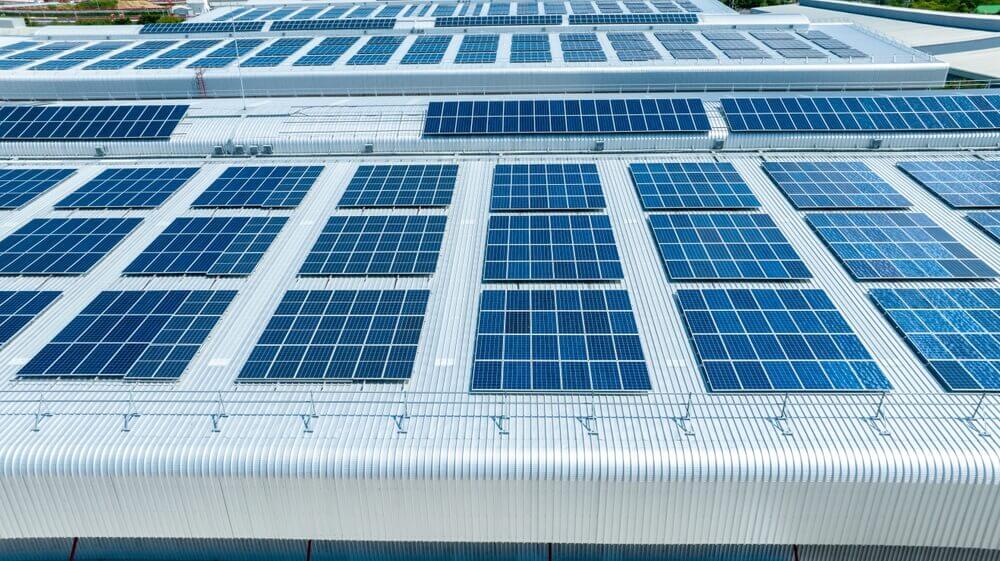Many businesses overlook solar photovoltaic (PV) investment opportunities due to their perceived high costs and complexity. However, it’s possible to secure a strong ROI from solar – both by taking advantage of federal and state incentives and by leveraging accelerated depreciation tools.
This free article serves as a comprehensive guide to demystifying the complexities of commercial solar financing, making it not just a viable investment but a highly profitable one that delivers bankable returns for decades.
Common Misconceptions about Commercial Solar Power
Misconceptions around excessive costs and uncertain returns often deter business investments in solar power. However, these concerns stem from outdated or incomplete information. The reality is that federal and state incentives can substantially offset initial solar expenses, making it an increasingly affordable option.
What’s more, PV systems are not merely an environmental play – they can also provide considerable long-term savings on rising energy bills, transforming into a financially prudent asset. Solar power’s viability as a long-term investment lies in its potential for substantial utility bill savings year after year, not immediate returns.
With a proper understanding of available incentives and accurate projections of solar’s benefits over decades, businesses can make better-informed decisions. The perception of solar as a financial risk gives way to its recognition as a valuable, money-saving investment able to provide reliable financial and environmental returns for years to come.
How the Federal ITC Boosts Your Solar Investment
The Federal Investment Tax Credit (ITC) serves as a cornerstone in commercial solar financing, offering a 30% tax credit on the total cost of a PV installation. Imagine investing $100,000 in a solar project; the ITC could yield a $30,000 credit on federal taxes.
But the ITC’s flexibility is what truly sets it apart.
Businesses can choose to claim the entire 30% in the first year or distribute it over a few years. This adaptability enables strategic financial planning, allowing companies to align their tax benefits with anticipated profits or liabilities.
Even better, the Investment Tax Credit goes beyond the basic 30% with additional bonuses:
- Domestic Content: Projects using US-manufactured components can secure an extra 10% in tax credits, elevating the ITC to 40%.
- Energy Communities: Projects in designated energy communities also qualify for an additional 10%, making the total ITC 40%.
- Low-Income Areas: Installations in low-income communities or on Indian lands are eligible for another 10% boost.
*By taking advantage of these bonuses, businesses can significantly reduce PV installation costs, making solar a financially smart choice.
State-Specific Solar Incentives You Should Know
While the Federal ITC provides a strong foundation for solar investments, having access to local incentives can further sweeten the deal:
- Oklahoma: Offers net metering – a utility-level program that allows you to sell excess solar electricity back to the energy grid. This incentive doesn’t lower upfront costs. However, it can help shorten the payback period of your solar investment project by delivering even larger savings month after month.
- Arkansas: Provides PACE financing for upfront costs and net metering for long-term savings.
- Texas: Goes a step further with property tax exemptions, solar rebates, and PACE financing.
- Missouri: Similar to Texas, Missouri offers local businesses PACE, rebates, and net metering.
*By leveraging these state-specific incentives, businesses can maximize the ROI of their solar systems.
Navigating REAP Grants for Rural Solar Projects
The USDA’s Rural Energy for America Program (REAP) offers grants that cover up to 50% of solar project costs for rural small businesses and agricultural producers – capped at $1 million per project. When combined with the 30% Federal ITC, businesses can reduce up to 80% of their solar installation costs, which significantly shortens the payback period.
The grant-writing process, however, is not straightforward.
Partnering with an experienced engineering, procurement, and construction (EPC) solar company can help you successfully navigate the REAP application, ensuring you maximize your grant’s potential and make your solar investment even more rewarding.
MACRS: the Tax Tool That Accelerates Solar Payback
The Modified Accelerated Cost Recovery System (MACRS) is a powerful tool in the federal tax code designed to accelerate depreciation deductions for businesses. This system allows you to deduct a significant portion of your solar project’s tax basis over the first five years. The beauty of MACRS lies in its flexibility – it accommodates various depreciation rates, including options for bonus depreciation in the first year.
What does this mean for your ROI?
Simply put, MACRS can dramatically speed up the payback period of your solar investment. Unlike straight-line depreciation, which spreads deductions over many years, the government’s MACRS solar rule concentrates them upfront. This results in higher deductions when they are most financially beneficial – often enabling solar projects to break even in under five years.
APC Solar: Your Go-To Expert for Maximizing Solar ROIs
When it comes to optimizing clean energy returns, APC Solar is the industry leader. With an in-depth understanding of all available solar incentives, from federal to state-specific, our team crafts tailored solutions designed to secure the highest possible ROI for each client.
What sets us apart is our in-house grant writing service for REAP applications. With an impressive 90% approval rate, APC Solar eliminates the guesswork and streamlines the often laborious paperwork, ensuring a smooth and successful application process.
But our expertise extends beyond grants.
We’re also proficient in the nuances of Solar MACRS, helping businesses fully capitalize on accelerated depreciation benefits. Whether you’re deciphering federal tax codes or exploring the advantages of PV technology, APC Solar offers a comprehensive approach that maximizes your investment.
Ready to Unlock the Full Potential of Commercial Solar?
Federal and state incentives, REAP grants, and MACRS depreciation aren’t just financial perks; they’re your ticket to a wise and profitable PV investment. With so many avenues to maximize your ROI, there’s no reason to hesitate. APC Solar specializes in transforming incentive opportunities into tangible financial gains tailored to your business needs. Schedule a free consultation with us today to start your journey toward a more profitable and sustainable future.
